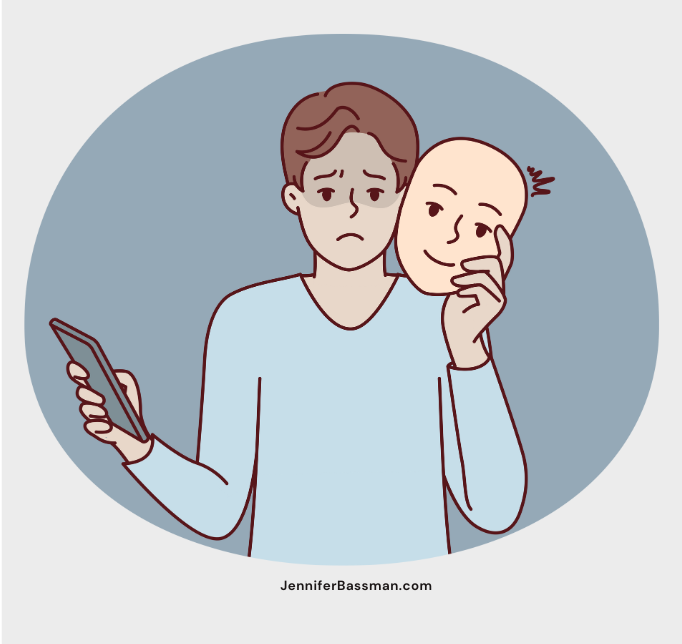This past summer, I got a big lesson on how to deal with my grief and how it intersects with burnout.
My husband and I had to let go of one of our dogs, Herbie The Lovebug. He was a hairless, charming ladies man that had us wrapped around his paws.
Herbie is the third dog we have lost in the last three years and I have to admit it has been more than my dog-obsessed heart can handle. (Claire Bear at 17 ½ years old in March 2020; Cooper Love Bartholomew at 12 years old in April 2021; and now Herbie The Love Bug at 15 years old in July 2022.)
When Cooper passed last year, he was part of a string of life-altering losses. I was so gutted by losing him, that I stared at walls for about a week because I was so overwhelmed.
I must be doing better if I am writing this email hours after losing Herbie, right? Wrong.
I was so stunned and scared by my reaction after losing Cooper that I started researching how stress plays a role in grief. I lost my dad in 2017 – a major loss – but I didn’t lose myself after his passing. Why did I feel the need to shut down emotionally and physically this time?
I have learned a lot about grieving and this seems like the perfect time to share, as well as, help me process my grief.
Grief Is Stressful
Very stressful. It’s a natural reaction to emotional and traumatic events, but many of us tend to overlook its impact or downplay the experience.
The stress experienced after losing a loved one – human or furry – is like riding a rollercoaster because we go through so many peaks and valleys during our grieving process. The initial death is the tallest peak, that slowly slides into a valley until we are triggered by something that reminds us of our loss again. Each of those triggers initiates the chemical stress response in our bodies.
Each time we experience these peaks and valleys, we are compounding the stress that our body is feeling, making it even more difficult to manage our emotions, think clearly, or process each event.
There is no timeline for grief. It takes however long it takes. Each of us is different. But when we avoid processing our grief, we essentially keep an open wound inside of us that infects various aspects of our life.
Why Do Our Stress Levels Rise When We Grieve?
There are many reasons our stress levels rise as the result of losing someone or something we love. These are the five reasons that resonated the most with me:
- Change: We are not only experiencing emotions when we grieve, but also many changes to our life without our loved one. For example, losing Herbie changes my routine. Even though I have three other dogs that I still need to feed, walk, and love, the routine is interrupted by one less dog. And, at each point in the day that my routine is interrupted – one less mouth to feed, one less dog to walk, one less dog to count as being inside or outside – an emotional response is triggered.
- Emotions: When we lose someone or experience another form of trauma, we feel intense emotions that may overwhelm us. So much, that we don’t feel as though we have the capacity to handle them. And, along the way, we also may be battling an internal struggle with conflicting thoughts and emotions about the person, the pet, or the experience itself.
- Interpersonal stressors: This includes conflict, alienation, and hurt feelings among family and friends.
- Pressure: Many people feel pressure to conform to a timeline or expectations of others. Also, many aren’t granted a grace period to grieve or we don’t allow ourselves that grace period. We feel pressure to:
- Move on
- Be normal again
- Feel better
- Support other grieving family and friends
- Step into new roles
- Go back to work
- Let go
- Frustration: We may feel frustration because it seems like everything in our life has changed and we want things to go back to the way they were. Or, we want something we can’t have – like our loved one back.
Addressing Pet Loss Specifically
This email isn’t strictly about grieving the loss of a pet. However, I do want to point out that it is an emotionally devastating experience. Yet, so many people don’t treat it as such, partially because they are embarrassed by the depth of the grief or of the upheaval it has caused. We hold grieving over the loss of a pet in the same regard as a human death.
However, losing a pet can be as intense and emotional as losing a human.
Grief from losing a pet can trigger “broken heart syndrome.” This syndrome occurs in response to grief that is so severe the person exhibits symptoms that mimic a heart attack, including elevated hormone levels that can be 30 times greater than normal. The loss of a pet can be the equivalent for some as losing a spouse or partner. Considering this animal is a companion and family member, this isn’t surprising.
Another reason that the loss of a pet is so stressful, is that we often have to make the decision to end our pet’s life for them. When making end of life decisions for a human, you experience tremendous stress during the decision-making process and after the patient dies. A study by the Oregon Health Sciences University found that some people experienced stress levels that were twice as high as families who lost their house in a fire.
Professor Elizabeth Harper Neeld says in her book Seven Choices: Finding Daylight After Loss Shatters Your World, “When the bonds we have with others are disturbed, at some deep level we fear for our very survival… Our brain has stimulated us to take action, but since we cannot undo the loss, there is no action we can take. We are, therefore, held taut. This means that our bodies are under enormous stress.”
We Also Grieve Job Loss
We can also experience grief from a variety of other traumatic events. Job loss, divorce, loss of a home, downsizing a home, retirement, and animal welfare work are just a few other examples of experiences that can rock our world.
We don’t always recognize grief in these other events because we don’t regard the loss we experience as being nearly as meaningful. Yet, it has a profound impact on your daily life. The loss of income, the loss of a family home, the loss of career, or a disappointing outcome can translate to grief. You have lost something valuable and meaningful that gave you direction in your life – your hopes, your dreams, your expectations.
The stress from any of these events can also lead to burnout. Remember, burnout is the result of chronic stress that has gone unmanaged for a long period of time. Which leads me to…
I Burned Out Last Year And Didn’t Even Know It
I burned out in 2021 and didn’t even know it. I didn’t expect burnout to be the result of the extended grieving process my husband and I experienced. I hit an emotional wall by summertime that didn’t allow me to process much of anything – intellectually or emotionally.
The signs were there: chronic stress, exhaustion, emotional depletion, cynicism. But, I failed to connect the dots to burnout.
I admit, as a burnout coach, I was quite embarrassed by this. However, I learned that it is rare for people to acknowledge the amount of stress their grief causes. We see grief as an emotional response, not necessarily a stressful one. Maybe because we are so busy dealing with details, worrying about what other people think or need, or because we are embarrassed by the grieving process as a whole.
We admire strength, not vulnerability. Vulnerability is still seen as a weakness, rather than as a powerful ally in living and being.
I Burned Out Because I Left Out A Crucial Ingredient
I knew I had a problem after Cooper’s passing in April 2021 when I couldn’t tell anyone that it happened. Not that I am an over-sharer, but it scared me not to be able to share this news. I lacked the emotional bandwidth to deal with the out-pouring of love I knew that my family, friends, and community would provide. But it was just that very thing that would have helped refill my soul.
Regardless of why we are grieving, a crucial ingredient in recovering from grief is social support. When this is absent, we add more stress to the grieving process which complicates it and can extend it.
So, this time, I am reaching out to my community. You. You are my community and I want you to know how much I deeply miss Herbie and how profound and painful my grief feels at this moment.






